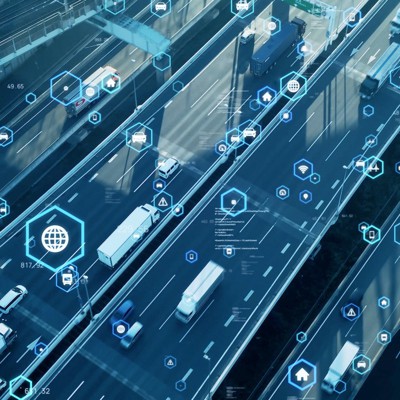
The Department of Transportation aims to incorporate artificial intelligence throughout the nation’s transportation infrastructure, seeking automated systems that can specifically aid in lowering long-term infrastructure costs and improve efficiency in transportation sectors.
As part of the Biden administration’s October 2023 executive order on AI, Transportation’s Advanced Research Projects Agency-Infrastructure released a new request for information asking for AI tool submissions specifically tailored to aiding the transportation sector.
“Virtually all aspects of transportation and mobility — from the design, construction, operation, and maintenance of physical infrastructure systems to the operation of the digital infrastructure that underpins and enables the movement of people and goods — will likely be impacted by the deployment of AI tools and applications,” the RFI states.
The executive order stipulates that Transportation and ARPA-I explore AI-based solutions to current challenges faced by modern transportation. The RFI calls for applications that could embody a diverse series of solutions, including enhancing pedestrian safety, supporting autonomous vehicles, optimizing traffic management and air traffic control and streamlining supply chain networks, among others.
Sensors, risk analyses, digitized asset management, database analyses and visualizations and shared mobility-on-demand services are some examples of the software and hardware tools Transportation is looking for.
The RFI also asks applicants to focus on how AI can present both challenges and opportunities for the transportation sector. The RFI specifically asks about current-, near- and future-term AI applications that can impact multiple aspects of the transportation sector, such as safety, climate, equity and economic strength.
“As the federal government has emphasized, there are substantial ethical, legal, and societal
risks and potential adverse effects surrounding the application of AI across society,” the RFI states. “Minimizing risks and adverse effects through developing trustworthy AI and enhancing trust in human-AI interactions, reducing bias in data, protecting privacy, and developing robust AI systems, standards, and frameworks will be integral to ensuring the effective incorporation of these new technologies into transportation and mobility systems.”
Transportation began its foray into leveraging AI systems as solutions to existing infrastructure problems before with the phased Complete Streets AI Initiative. The final product of this venture would harness existing and new traffic data to create an interactive dashboard of transportation metrics.
The RFI notes that Transportation also understands the potential of AI solutions to aid in daily operations and core business activities. Eligible AI solutions could also stem from automated systems developed for other domains, with elements like foundational model development, deep learning technologies, and advanced algorithms likely being “directly applicable to AI in transportation.”
Applicants will be able to submit entries within 60 days of the RFI’s publication in the Federal Register.
